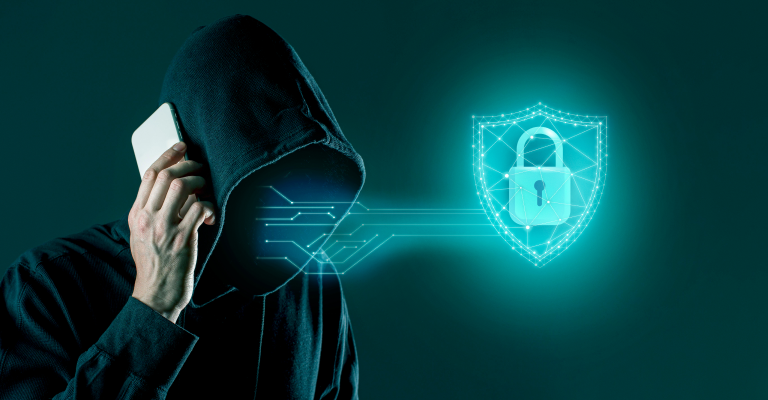Decentralized identity in education is totally changing the way institutions manage student data and credentials. The higher education sector is transforming quickly as it adopts secure, efficient, and user-friendly digital solutions. Decentralized identity is one of the most exciting innovations in this space. Experts expect the decentralized identity market to grow to $102.0 billion by 2030, with an annual growth rate of 90.3% starting in 2024.
Using technologies like blockchain and self-sovereign identity (SSI), decentralized identity solutions give students more control over their data, improve efficiency for institutions, and solve major problems like data security and privacy. In this blog, we will look at the main benefits of decentralized identity for higher education.
What is Decentralized Identity in Education?
Decentralized identity offers individuals to control their digital identities without depending on central authorities. In education, students manage their credentials, like transcripts, diplomas, and enrollment records in secure digital wallets. Blockchain technology verifies these credentials to ensure they are authentic while keeping personal data private.
Traditional systems store student data in centralized databases, which are often targets for breaches. In contrast, decentralized identity solutions allow students to share only the information they choose with schools or employers. This method improves security and gives students more control over their personal data.
Also Read More: Why Use Decentralized Identity and Open Badges in Education?
Benefits of Decentralized Identity Solutions
1. Better Student Privacy
Decentralized identity systems protect student privacy by removing the need for centralized databases that store large amounts of personal data. These databases are often targets for cyberattacks. With decentralized identity:
- Students control their own data and choose what to share and with whom.
- Personal information stays on their devices or is securely encrypted on a blockchain, reducing the risk of hacking.
- Students share only what is needed, like proving their age without revealing their birthdate.
This approach follows privacy laws like GDPR and builds trust between students and institutions.
2. Stronger Protection Against Fraud
Decentralized systems reduce fraud by removing the weak points of centralized databases. They use advanced security features like cryptography and blockchain technology to:
- Keep credentials tamper-proof and verifiable through secure blockchain records.
- Prevent identity fraud by ensuring credentials are issued and verified safely.
This system protects both students and institutions from data breaches and fraud.
3. Easier Enrollment and Administrative Tasks
Decentralized identity makes enrollment and administrative processes faster and simpler.
- Institutions such as colleges/universities can issue documents using verifiable credentials & students can verify their documents on a third-party platform which is accessible by everyone globally.
- Real-time verification removes delays caused by manual checks or relying on third parties.
- Universities save time by automating compliance checks and reducing paperwork.
For example, universities can issue digital diplomas that students share directly with employers. This speeds up hiring and ensures credentials are authentic.
4. Lower Costs for Universities
Managing student data in centralized systems is expensive. Decentralized identity shifts the responsibility for storing data to students, reducing costs for institutions.
- Universities avoid the high costs of maintaining large databases.
- Blockchain-based systems remove intermediaries, cutting verification expenses.
- Automation reduces the workload for staff and avoids mistakes.
These cost savings let universities focus more on improving education and student experiences.
5. Easy-to-Use Educational Records
Decentralized identity systems make educational records more accessible and flexible by following global standards:
- Students use the same credentials across different institutions or platforms without re-verification.
- Employers or universities verify qualifications instantly through blockchain.
- This portability simplifies transferring schools or applying for jobs, even across borders.
For example, a student transferring to another university can share their academic records instantly without waiting for manual transcript requests.
6. Giving Students Control with SSI
Self-sovereign identity (SSI) puts students in charge of their digital identities:
- Students decide how much information to share for admissions, job applications, or financial aid.
- SSI reduces bias by verifying credentials without revealing personal details like race or nationality.
- Students without government-issued IDs can use alternative verification methods to access education.
This approach promotes fairness and inclusivity while improving the overall student experience here.
7. Better Student Experience
Decentralized identity improves how students interact with institutions throughout their education journey:
- Students access their credentials anytime through digital wallets.
- Employers verify qualifications instantly during job applications, simplifying hiring processes.
- Streamlined interactions build trust between students and universities.
These changes create a smoother, more enjoyable experience for students and institutions alike.
Use Cases of Decentralized Identity in Education
- Admissions: Students use their wallets to share verified credentials directly during applications.
- Financial Aid: Institutions confirm eligibility securely without revealing unnecessary personal details.
- Graduation: Universities issue digital diplomas that students store safely for lifelong use.
- Job Applications: Employers verify academic records instantly through blockchain systems.
These examples show how decentralized identity addresses everyday challenges in higher education while improving processes for everyone involved.
How EveryCRED Benefits Your Educational Organization
EveryCRED helps educational institutions solve common challenges in the digital age. Using blockchain technology and verifiable credentials, We make issuing and managing academic records simple, secure, and efficient. Universities can issue trusted digital credentials that are tamper-proof and easy to share.
This reduces paperwork, saves time, and cuts administrative costs. Our platform also protects against fake degrees and certificates, ensuring fast and reliable verification for employers and other institutions.
With our strong platform ecosystem, students can easily manage and share their credentials throughout their education and career, improving their experience and your institution’s reputation.
Check this post: The Future of Verifiable Credentials in Education
Conclusion
Decentralized identity in education changes how higher education handles student information. It prioritizes privacy, strengthens security, streamlines processes, and gives students more control over their data.
Universities that adopt these solutions reduce their administrative burdens and create a better, more transparent experience for students. As the education sector moves toward digital transformation, decentralized identity becomes a key step in building trust, efficiency, and autonomy for the future.
Want to know how decentralized identity can simplify your processes and improve student experiences at your institutions? Book a free demo today and take the first step towards a more secure and efficient future in higher education.

 16th December, 2024
16th December, 2024 



